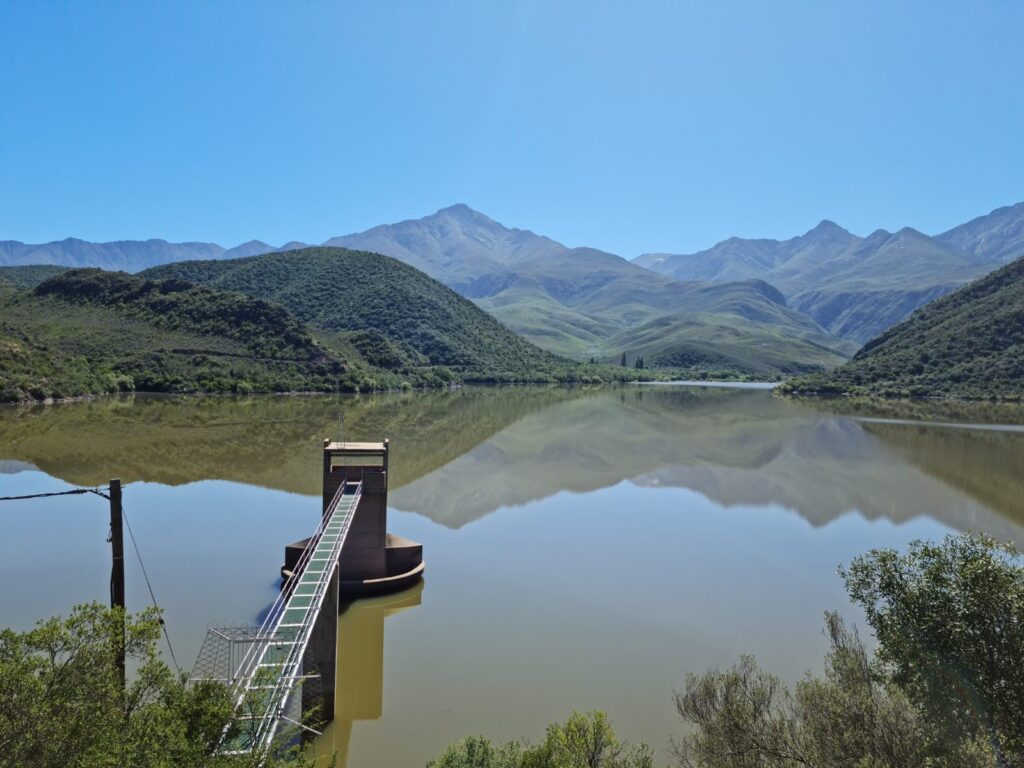Residents of Oudtshoorn are advised to boil water used for drinking purposes.
Oudtshoorn, 15 April 2024 – Following the recent substantial rains in the Greater Oudtshoorn, the water level in the Raubenheimer Dam has increased from 68% on 08 April 2024, to 93%. The Melville Dam is still at full capacity, 100%. As a result, the current Level 1 water restrictions for Oudtshoorn, supplied by these two dams, are lifted with immediate effect.
The Executive Mayor of the Greater Oudtshoorn, Alderman Chris Macpherson, said that this is good news that the dam level has risen to the point where Level 1 water restrictions in Oudtshoorn can be lifted. “It is important to know that Dysselsdorp and De Rust remain under Level 6 water restrictions due to the limited water abstraction rights from the Huis River, which supplies De Rust.”
Chris Swart, Acting Director of infrastructure, explained that the excess water from the Huis River, is allocated to downstream farmers and that this abstraction right is insufficient to meet the demand for De Rust and Blomnek. “Additionally, the boreholes supplying Dysselsdorp and the KKRWSS are operating at full capacity and cannot meet the normal demand for these areas.”
Swart also mentioned that in terms of water quality, the turbidity of the water in the Raubenheimer Dam is currently elevated and that “residents of Oudtshoorn are advised to boil water used for drinking purposes.” Turbidity is a measurement of the suspended particles in the water, and while increased turbidity is generally not harmful, it can reduce the effectiveness of disinfection. Regular water quality monitoring continues, and recent tests show no presence of E. coli, an indicator of potentially harmful bacteria. Currently, the water in the Melville Dam has a much lower turbidity than that in the Raubenheimer Dam, likely due to its catchment area being more densely vegetated. To mitigate the quality issue, water from the Melville Dam will be used until the situation at the Raubenheimer Dam improves.
Swart further stated that residents should be aware that the only water treatment at the Raubenheimer Dam is chlorination for disinfection; there is no filtration due to the lack of a treatment plant. “This approach has been in place since the dam’s construction in the early 1970s and has generally been acceptable due to the high quality of the raw water. However, after heavy rainfall, water quality can deteriorate and may persist for several weeks.”
To address this recurring issue, the municipality has considered establishing a treatment facility. The most recent 2014 report recommended constructing a filtration plant estimated at a cost of around R100 million, which has been included in the Integrated Development Plan (IDP), and funding options are currently being explored.
Executive Mayor Macpherson wants to inform residents that emergency water tariffs have not yet been implemented. “The current water tariff, the standard rate, remains unchanged for all areas and emergency rates only apply if dam levels drop below 50%.”

